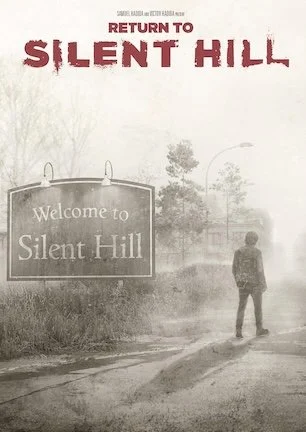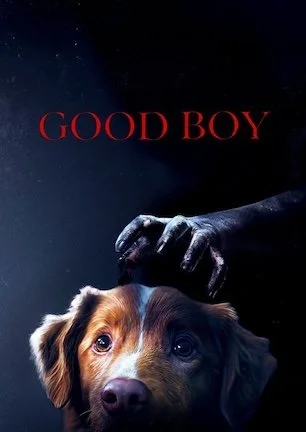Studio: Freestyle Digital Media
Director: Simon Rumley
Writer: Simon Rumley
Producer: Simon Rumley, Bob Portal
Stars: Amanda Fuller, Ethan Embry, Eric Balfour, Alex Essoe, Allie DeBerry, Devin Bonnee, Jemma Evans
Review Score:
Summary:
When her marriage crumbles, a woman addicted to clothing meets a mysterious man who takes her down a dark path to a new identity.
Review:
“Fashionista” is writer/director Simon Rumley’s seventh feature, yet it feels like it comes from a first time filmmaker. It’s poor form to only be one sentence into a review and already on the hook to clarify my wording, but allow me to extrapolate.
I don’t intend to imply “amateurish.” Simon Rumley has been around the block more times than can be counted on two hands. It isn’t even in question that he knows how to make a movie. Rather, there is an unsettled vibe to the movie’s choppiness that gives “Fashionista” the air of an experimental student film. So even though I don’t dub it as seeming like a fledgling freshman effort to be insulting, that notion still isn’t positive.
“Fashionista’s” aesthetic has the scent of someone treading on unfamiliar ground, which I don’t think Rumley would dispute. He is comfortable coloring outside familiar lines to broaden his horizons as someone influenced by other unconventional creators. He wants to boldly challenge himself. He wants to reinvent his skill set. However, there is a question over whether Rumley’s risks pay off with a project that speaks the words he sets out to say.
In my experience with this movie, I never divined what that message was meant to be, so I’m inclined to say it doesn’t. I’m left feeling like “Fashionista” throws a lot at the wall while blindfolded, and hopeful intentions of artistry aren’t enough to make much of it stick.
Others make habits out of caffeine, cocaine, gambling, or food. April’s unusual addiction is clothing. Her husband Eric has a similar obsession, which is why they went in together on running a vintage clothing store in Austin, Texas.
Their business isn’t going so well however, and neither is their marriage. “Wrong number” phone calls and midday meetings with who knows who have April suspecting Eric is cheating on her. She’s right, though it isn’t exactly the conspiracy her imagination initially works out in her head.
Regardless, April takes unspoken revenge by entering into a lurid affair of her own. Handsome huckster Randall is a hot fit for April since he likes women in expensive dresses. April gets free reign over Randall’s credit card to buy what she wants. In return, Randall convinces April to take an exploratory trip into a swinger’s lifestyle replete with ménages à trois and BDSM.
April is damaged enough by her relationship devastation to want to tiptoe into these dangerously deep waters. It’s when those waters go over her head that April starts drowning fast, and the person she becomes is someone she cannot completely control.
The centerpiece of “Fashionista” is Amanda Fuller’s fascinatingly multifaceted performance as April. Whether playing seductive, vulnerable, fierce, or furtive, Fuller is unstoppable, hitting every nuanced expression and inflection with pinpoint precision. Her acting is terrific, and a singular reason for the movie to be worth a watch.
“Fashionista” is a psychological character study with April’s arc anchoring its core. The issue is that Simon Rumley chooses to tell her tale nonlinearly, and this choice both detracts and distracts from that study.
The first half of the film is particularly confusing in its use of concurrent timelines, flashbacks, and flash forwards to events that have yet to happen. I can’t come up with good guesses as to why some non-sequitur shots are inserted where and when they are, seemingly at random, other than to wonder if they were editing room errors. “Fashionista” sometimes seems to be doing a “Sliding Doors” type of narrative, only to reveal that scenes are simply arranged out of order for reasons unknown.
It could be that Rumley’s intention is to instill audience disorientation to parallel April’s unraveling mind. What actually happens is attention is redirected toward the manner of storytelling instead of maintaining focus on April. “Fashionista” becomes about the movie itself rather than what is happening within its world.
When the movie is consistent, it can be hypnotic, such as during a late scene where a frenetic electronic score intensifies an overlong take of four people casually undressing in a wide shot. Then the film usually ends up breaking its own illusions. Jarring juxtapositions, senseless segues, and a guerrilla handheld camera join up with occasional slow-motion sequences or a schizophrenic soundtrack ranging from growling punk rock to warbling heroin blues for a mess of styles that don’t mesh.
“Fashionista” concludes with a divisive ending that can be interpreted a number of different days. Trouble is, you have to care enough about what it might mean to give it any thought one way or another. I can’t say that the movie offers an incentive worth expending that effort.
Maybe if it were cut chronologically, I might feel differently about the material. Should your tastes be more tolerant of fractured formatting, perhaps you’ll be better suited to suss out the story behind “Fashionista” for yourself.
Review Score: 45






While the 110-minute runtime could use a trim to maintain more energy, “Redux Redux” is an easy recommend for anyone who enjoys low-key sci-fi.